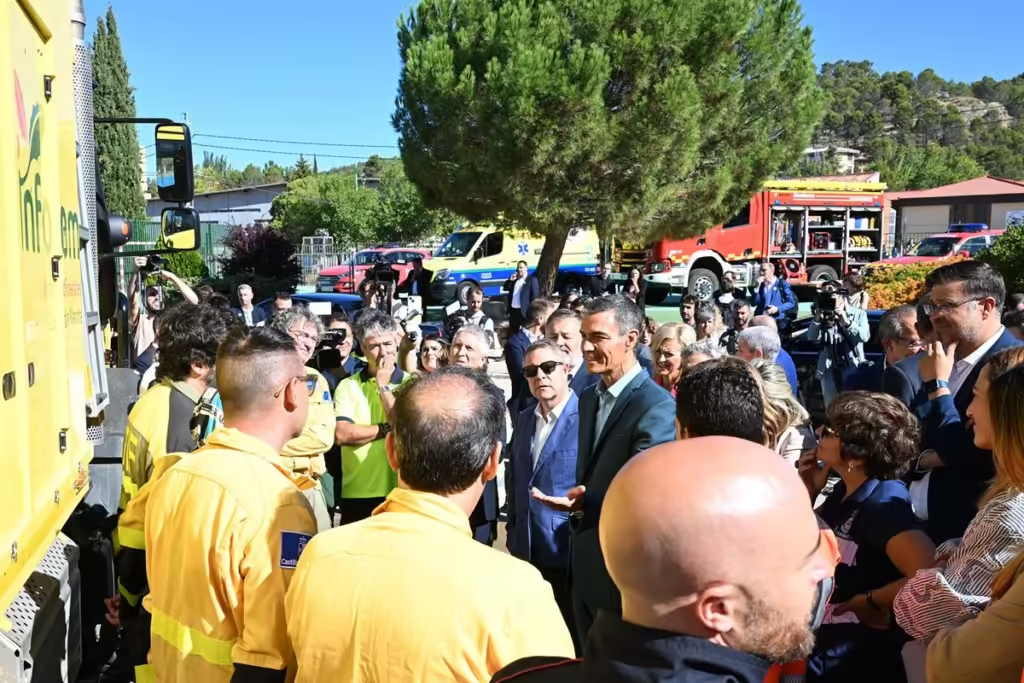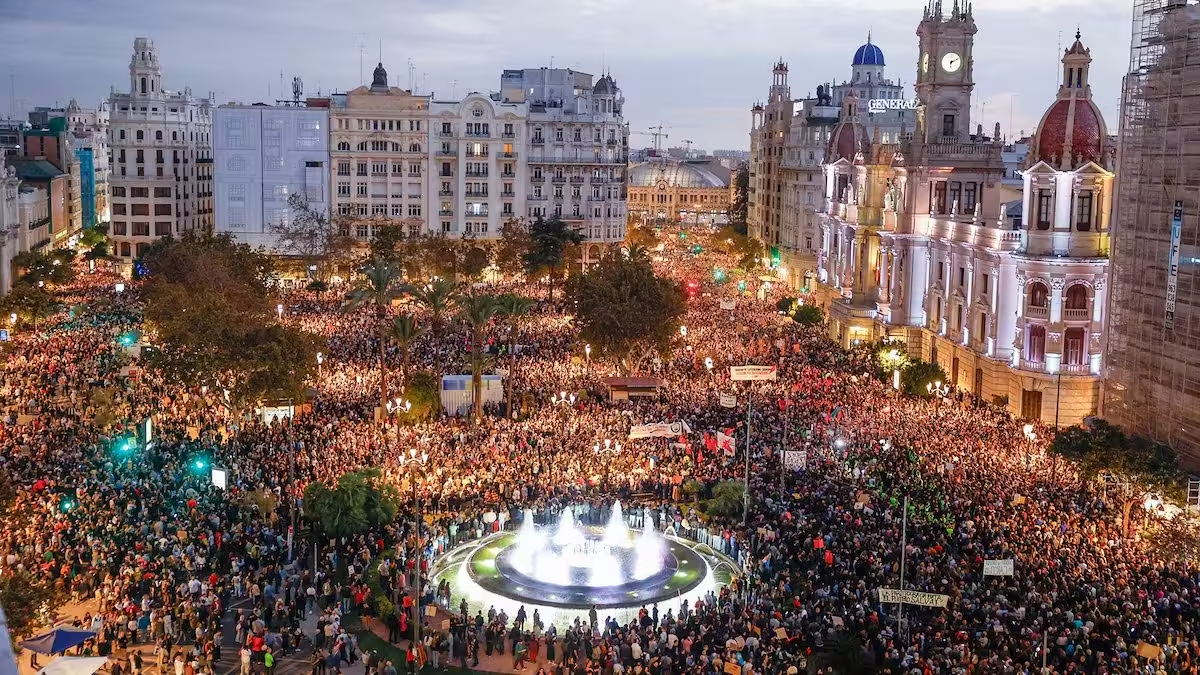Emergency Training Becomes Compulsory for Schoolchildren in Spain
Starting this school year (2025–2026), more than eight million students across Spain will receive compulsory training on how to respond to emergencies like extreme weather events, earthquakes, wildfires, and more. The new Plan de Formación ante Emergencias, presented by Prime Minister Pedro Sánchez and Education Minister Pilar Alegría, will cover all non-university education levels and make Spain a European leader in school emergency training.
Teaching Kids and Teens to Stay Safe
The goal is to build a culture of prevention and make sure the entire school community knows what to do in emergencies. Students will learn how to handle both natural disasters and accidents caused by human activity. Training will cover earthquakes, tsunamis, volcanic eruptions, extreme weather, forest fires, chemical and nuclear accidents, and hazardous material transport incidents.
The plan integrates training on climate, technological, and social risks into all stages of non-university education. Its goal is to give students the knowledge, skills, attitudes, and values needed to respond safely and effectively to emergencies caused by natural events or human activity.
Prime Minister Pedro Sánchez highlighted that some regions, such as Castilla-La Mancha, had been implementing emergency training voluntarily, but this new plan makes it mandatory nationwide. He added that emergencies, especially those worsened by climate change, require a civic culture of safety that goes beyond politics: “If we want to strengthen citizen safety in civil protection emergencies, we must turn emergency policies into national policies.”

How the Training Works
Preschool and primary school students will get at least two hours of emergency training each year. Older students in secondary school, vocational training, and high school will receive a minimum of four hours. Lessons will be adapted for each age group to make sure students understand and can act effectively.
Preschool children (ages three to five) will learn to recognize alarms, understand basic safety principles, and notice early signs of danger. Older students will receive practical advice, such as seeking higher ground during floods or taking cover under desks during earthquakes.
Students will also learn about prevention, alert systems, emergency procedures, and distinguishing between accurate information and misinformation during crises. They will practice identifying risks in their environment and in large crowds, understand self-protection measures, and receive guidance on emotional support during emergencies.
Tailored Materials and Local Adaptation
Autonomous communities and schools can supplement the training with materials focused on local risks, guided by geographic risk maps. Preschool and primary students will get at least two hours of training per school year, while older students will get a minimum of four hours.
More than eight million students and nearly 800,000 teachers across 25,000 schools will have access to videos, infographics, and teaching guides designed for different education levels. All materials follow inclusion and accessibility principles and are available in Spanish, Catalan, Basque, Galician, and Valencian.
Who Will Teach the Training
Training will be delivered by local and regional Civil Protection services, volunteers from the national Civil Protection system, and school teachers. The National Civil Protection School, together with the Ministry of Education and regional authorities, will provide necessary preparation for all trainers. Volunteers must complete a required preparatory course.
The Ministry of Education has allocated 240,000 euros to create teaching materials, guides, infographics, and videos.

Spain Leads the Way in Europe
Spain is the first country in Europe to make this kind of training part of the compulsory school curriculum.
Prime Minister Pedro Sánchez said: “Spain becomes the first European country to include civil protection emergency training as part of compulsory education.”
He pointed to recent disasters, from floods in Valencia to major wildfires, as a reason why the training is urgent. Education Minister Pilar Alegría said the plan will help students respond safely to emergencies that are becoming more common due to climate change.
He pointed to recent disasters, from floods in Valencia to major wildfires, as a reason why the training is urgent. Education Minister Pilar Alegría said the plan will help students respond safely to emergencies that are becoming more common due to climate change.
Listen to the complete announcement here
Support from Save the Children
Save the Children Spain welcomed the announcement, saying: “We are pleased that this measure is announced for the 8 million school-age children we have been calling for. Including children in climate crisis adaptation plans is not optional: it is essential.”
Parents Share Their Thoughts
Parents have reacted with a mix of relief and caution.
Pilar said: “This is a great idea. It’s a relief to know our children will be prepared if the worst happens.”
Meanwhile, Emma added:
“I think it’s a good idea, but I worry about the younger kids. Will it make them feel anxious or vulnerable? My son has a very active imagination. If he sees something about a tornado on the news, he struggles to sleep.”
Major Investment in Education
Alongside the emergency training, the Sectoral Conference approved 382.7 million euros for six education programs in 2025—a 195% increase compared to 2018. Since then, more than 4 billion euros have been invested in similar programs.
Funds will support:
- 120.5 million euros to improve math skills, helping around 660,000 students.
- 56.2 million euros to strengthen reading skills, including early education.
- 36.4 million euros for inclusive education programs.
- 58.5 million euros for textbooks and teaching materials.
- 5 million euros for emotional well-being initiatives.
- 105.9 million euros for the PROA+ program, benefiting over one million students in 3,700 schools.
Looking Ahead
The government says protecting lives and preparing for emergencies must go beyond politics. Sánchez called for a long-term national agreement on civil protection and forest management, stressing that climate-related crises are no longer something we can ignore; they are part of everyday life.
With this plan, Spain is giving the next generation the knowledge and tools to stay safe and act quickly when disaster strikes.
What do you think about this new emergency training for students? Share your thoughts in the comments below.
Main image: Shutterstock/PeopleImages
Share this content:




1 comment